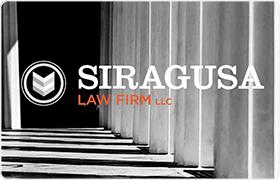Glen Rock Family Law Lawyer, New Jersey
Sponsored Law Firm
-
 x
x

Click For More Info:
-
Siragusa Law Firm LLC
678 Route 202/206 Building 5, Suite 5 Bridgewater, NJ 08807» view mapDivorce & Family Law Creative Thinking. Exceptional Results.
At Siragusa Law Firm, we take our responsibility seriously. We are passionate about helping you, making sure to guide you through whatever legal matter you face.
908-218-1100
Includes: Collaborative Law, Domestic Violence & Neglect, Paternity, Prenuptial Agreements
Michael J. Epstein
Mass Torts, Family Law, Corporate, Products Liability, Medical Malpractice
Status: In Good Standing
FREE CONSULTATION
CONTACTCaitlin M Stephens
Litigation, Lawsuit & Dispute, Family Law, Divorce & Family Law
Status: In Good Standing
FREE CONSULTATION
CONTACTSteven M Segalas
Divorce & Family Law, Child Custody, Residential Real Estate, Traffic, Domestic Violence & Neglect
Status: In Good Standing Licensed: 29 Years
Russell P Trocano
International, Workers' Compensation, Family Law, Personal Injury
Status: In Good Standing Licensed: 37 Years
Jerry Elashmawy
Family Law, Divorce & Family Law, DUI-DWI, Criminal
FREE CONSULTATION
CONTACTPeter J Brina
Litigation, Estate Planning, Family Law, Contract
Status: In Good Standing Licensed: 49 Years
Maryana Kanda
Mediation, Arbitration, Family Law, Divorce & Family Law
FREE CONSULTATION
CONTACTKenneth R. Rush
Family Law, Divorce, Child Support, Child Custody
Status: In Good Standing Licensed: 35 Years
FREE CONSULTATION
CONTACT Lynette Siragusa Bridgewater, NJ
Lynette Siragusa Bridgewater, NJ Practice AreasExpertise
Practice AreasExpertise
